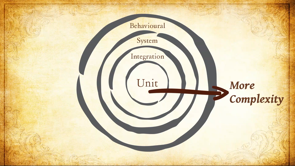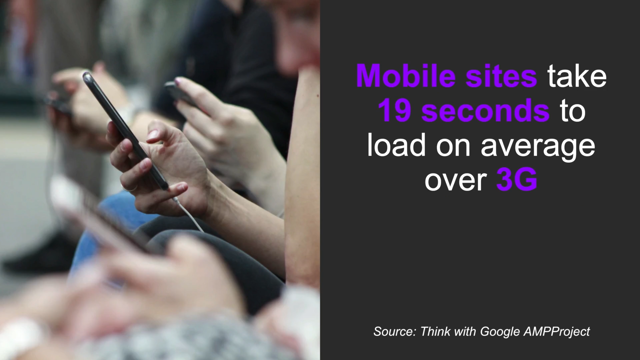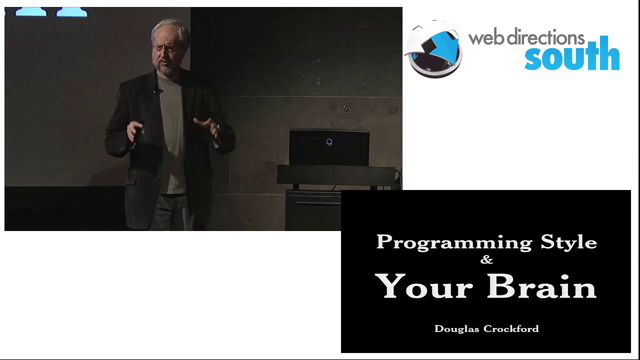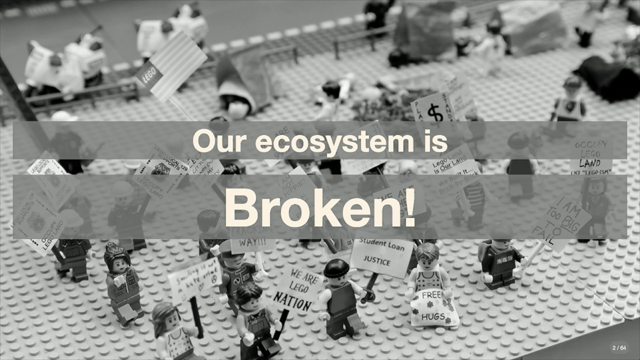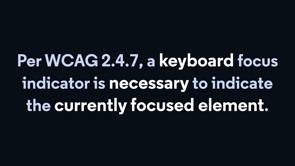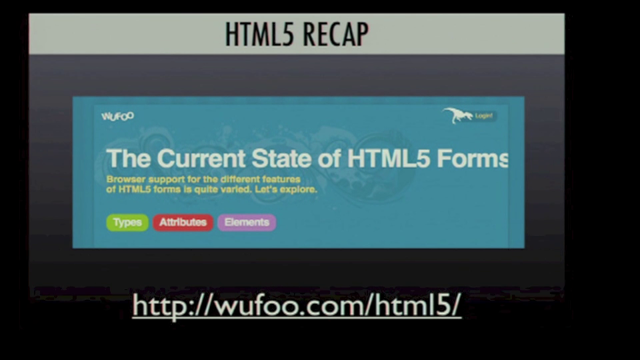
(upbeat instrumental music) - So, I am very excited to be here on Halloween. I absolutely love this day, and I'm Canadian so, you know, I'm a little bit biassed. I jumped at the chance to be able to have a whole presentation themed around Halloween.
I really was pushing for that monoculture monster thing so you'll see in a bit.
So, I'm here to warn you about a monster so vile, so wretched that lurks in the shadows waiting to destroy your business inside out. Sorry.
I'm talking, of course, about the monoculture monster, here to annihilate your morale, innovation, and consequently, your livelihood.
First, let's take a step back and get on the same page of what I mean by a monoculture. So, the Oxford Dictionary defines monoculture as a culture dominated by a single element; a prevailing culture marked by homogeneity. Monoculturalism is the practise of maintaining a single culture in a society, suppressing the cultures of minority groups and excluding external influences.
Let me repeat.
The lack of diversity and the suppression of other cultures. These are the reasons why I'm here to make my case against the monoculture monster. Now, I can hear you thinking, "Who is this 30-something, white, straight, male, "follically-challenged idiot talking about diversity?" The irony is not lost on me.
So that's cartoon me.
Hello.
My name's Michel Boudreau.
I'm French-Canadian if you couldn't tell by the name. I know I don't sound French, but get a few whiskeys in me and I'll sound French for you.
I'm a software engineer by trade, which means that my whole career's kind of been finding problems and trying to find the best solution for it. That could mean in terms of code, but, to me, it also means in terms of culture because it's a problem that I face every single day. My story begins in a very small town.
So that was Australia and we're going all the way to my small town on the east coast of Canada called Caraquet, also very French.
Completely French speaking, 5000 people.
That's my house right there.
Just to show the actual scale of it.
It's tiny.
As you can imagine, there was very little racial diversity in my small little rinky-dink town on the east coast of Canada.
We only had one Chinese family and they owned the Chinese restaurant.
We had one Japanese family and the patriarch was karate sensei.
I did not know I was living in an 80s movie until I moved to the city.
The reason I'm up here is because of my experience that I had coming face to face with the monoculture monster and still lived to tell the tale.
Of course, like all things evil, this thing started at a bank.
As you would imagine, stock traders are mostly white males coming from a fairly wealthy family background. The women account for only 12% to 15% of the workforce. I had the opportunity to actually work on a trading floor doing software for them, a platform at the time, so that they can lose your money a little bit faster. Some of the things that I saw and heard still chills me to this day.
The constant swearing, the freakin' berating, repeated shouting, daily misogyny, and fairly regular sexual harassment.
Any of these would be an instant, instant fireable offence at any sane company, but since this was the norm at this particular bank and these people were making heaps of money for the bank, everybody just ignored it, including HR, which, by the way, was mostly white males in the HR department.
Not a single female there.
I wasn't working for this bank directly, I was a contractor, but I felt disgusted just being present.
Everybody seemed to accept the behaviour and nobody spoke up against it.
For the few women that were on the floor, they had to endure it, being just as crass or lowering themselves to their level or risk not being included as part of the boys club. Any deviation from the norm was met with resistance, sometimes even ridicule.
"What do you mean you don't do this? "Everybody does this." The situation is worsened when new recruits try to mimic the behaviour in hopes that it would also mimic the salary. This is a shining example of what happens when a monoculture monster puts its claws into a business and goes unchecked.
The behaviours that we usually find abhorrent aren't met with consequences.
Does this sound familiar to anyone? Anyone in the room? I mean, mine is like, really extreme, but, you know, everybody has different experiences. But by not voicing my concern at the time, I became complicit.
I normalised it.
I normalised that monster.
I made it okay for those behaviours to be present and, in a way, accepted.
I've essentially helped lower the standard, the baseline that everyone should be held accountable on. Every fib not explicitly called out is a chance to lower the gauge, lower the needle to go down a very dark path. When the monster becomes bigger, it becomes even harder to push back.
There's normally more people involved.
It sets a new standard and gives a chance for the next person to try to even push that needle even further back towards an even worst culture.
But it doesn't need to be this way.
Things can be change for the better.
This particular example didn't just spontaneously appear. There was definitely an origin story, or some would say the birth of a monster.
And yes, there is a birth.
It doesn't materialise out of thin air.
It's a very gradual process, but there needs to be a genesis.
Something that causes the process to start. A primordial soup of culture, if you will, with the right environment and external forces that will kickstart that process of horribleness. I know this because we live in a world of change and diversity.
Every country, every person, every environment is different. If we're not homogeneous out there then how can a business be homogeneous in there? I didn't really get that.
The way that it forms, this monoculture, is slowly and then suddenly using the lack of culture design within the company and limiting the boundaries of the employees, as well as having reinforcing systems of work to unintentionally create a negative feedback that feeds on itself.
It can start with just a random employee, a single individual, that said something slightly inappropriate and they're in common.
Their behaviour isn't too bad.
The manager thinks it's not worth to really say something about it so that goes unsaid, which means that the employee can either re-offend or even give the courage to another employee to do the same thing or even worse.
The bad behaviour, however slight, begets more bad behaviour.
This only gets worse if the original offender is a person that's higher up within the company or in a leadership role, or maybe some head of state that has a particular pension for tweeting. Their actions have significance and can reverberate further as they can influence others.
This small inkling of unacceptable conduct is enough to get the snowball rolling down the hill, which can expose some of the worst in our society. I'm talking about racism, misogyny, and general hate. But just getting started isn't enough.
This corrosive culture needs to be able to grow and like anything that needs to grow, it needs to feed. So what does it feed on? It can feed from multiple sources to be able hit a critical mass before it can be truly devastating.
Apathy and the bystander effect is an important dietary requirement for this monster to grow.
Now, for the bystander effect for those who don't know, is essentially there's a situation that happens and you think somebody's gonna do something, somebody else but yourself.
In the end, nobody does anything.
That's the bystander effect.
If I ever got into a motorcycle accident, I'd really hope somebody calls the ambulance straight away and not just thinks somebody else is gonna call it. It's not gonna happen.
John Stuart Mills famously said, "Bad men need nothing more to compass their ends, "than that good men should look on and do nothing." It's important to remember that the company must be active in its design of a culture or else risk its very existence.
When the workplace becomes excessively volatile, when left unchecked, our little demon baby here will have the chance to grow to a full blown monster, which is infinitely harder to eradicate.
So, what do these monsters look like? I'd like to introduce you to the four biggest monsters that are here to destroy your business, pillage your productivity, and ravage your morale. ` There are many more than these four, but I wanted to concentrate on the most devastating ones so let's get to it.
First, we have the tribal monster.
Most of you know we are tribal people.
It was an evolutionary trait that we gained to be able to be wary of the untried, the new, the different.
We are trying to derisk our daily lives to be able to survive.
But by doing so, it also prevents us from opening our minds. Opening our minds to new people, to new ideas, to new culture.
If your culture, your current culture, encourages tribalism, it will simply dissuade new talent from speaking their minds, which normally means it's gonna demoralise them, which also normally means they'll probably not stay there for very long, which then further reinforces that tribalism. That culture's gonna stay in there and get entrenched. Those that are happy there will also further reinforce it. So it's like a double feedback loop, I guess you could say. That negative feedback loop can plunge your company's culture into the abyss of disrepair, and you definitely don't want that.
The next one is fear.
Fear's a very powerful motivator or demotivator. Witnesses might be unwilling to speak up because that they fear the offender or the consequences of snitching or maybe how it will affect their working relationship. This is made even worse if the offender is a senior position, as I said earlier, because if you are to snitch on that senior position it could be a very career limiting move.
That way you'll never get your promotion that you ever wanted so you might have to leave your company.
Google used its mountains of money to do research on itself. It asked what makes an effective team.
It did hundreds of double blind interviews with employees and leaders of 180 teams.
Then cross-referenced that with who's the most effective team.
What they found was quite surprising, at least for me. The number one reason why one team is more effective than another is psychological safety.
Let me repeat.
Psychological safety.
As defined by an individual's perception of the consequences of taking an interpersonal risk or to believe that a team is safe for risk taking in the face of being seen as ignorant, incompetent, negative, or disruptive.
To be able to feel safe, to say what you really think, and not feel like an idiot doing so, like I'm doing right now.
Sorry, little bit of fear there.
Fear is the opposite of this, the opposite of psychological safety.
It paralyses thought, prevents bonding between team members, and demoralises an individual to a breaking point. So, let's go to the next one.
Fear will then start creating this monster; suppressing of ideas.
It can destroy innovation by limiting collaboration and diverse thinking. A recent study by two Canadian economists found that while there are a greater amount of innovation measured by patents in suburbs, cities produce far more unconventional innovations, which required greater diversity of contributions and have more disruptive economic impact.
It takes more than just smart people to put them in a room to try to create something awesome. You also need different types of thinking, different perceptions, and a different life experience. You can't buy that and you can't train that. You have to live through it.
So you have to get different people of different backgrounds to be able to get there.
Wayne Gretzsky, the best hockey player in the history of the sport and a personal hero of mine, has said this very famously.
"You miss 100% of the shots you don't take." This rings particularly true if your business hinges on the future of getting those bright ideas right now.
And the last monster; status quo monster.
Once the monster is entrenched, it's kind of hard to get out of that funk, that feedback loop, those systems of work already in play. "It's not my responsibility" is something one of your coworkers would say or "I don't make that decision" or maybe your manager says, "That's just not how we do things here." Sound familiar to anyone? When this monster is entrenched, it's hard to move. Nobody wants a change.
And again, that's kind of a human trait there, the familiar. You feel comfort from having that same routine over and over again.
So, you have to remember what Issac Newton said about the First Law of Motion.
"An object at rest stays at rest "and an object in motion stays in motion "unless acted upon by an external force." You need to be that force to be able to start moving that culture back to a state.
Now, the only place left if you have any of these monsters or all of them...
Actually, if you have all of them come see me afterwards. I'll give you a hug or something because poor you. Is extinction.
The way of the dinosaur.
If you don't change, the world will change for you and you will have your own extinction event. I've gotten through it around Flash.
I don't know if anybody remembers Flash.
Yeah, I started my career in Flash, you know? I had to change, I had to adapt.
But I know so many companies that didn't and they died off. Way of the dinosaur.
So, how do we fight this monster? Gotta fight the beast somehow.
So, first off, you have to identify.
I've already given you four examples there of different kinds of monsters so if you identify that, great.
There are many more than this, but identify first. You can't do anything about it if you don't know about it. Second, psychological safety.
As a company, if you can, but within your team, probably where you have the most amount of impact. Make sure that everybody feels comfortable being able to say what they need.
Try to sew a polyculture.
So by this is trying to inject some different culture into your business or even try to break up a certain team that just seems to be white males or maybe sometimes just females.
If you can break that apart, the thinking starts to change. The behaviour starts to change and hopefully that becomes a little bit better. Another way of trying to inject more polyculture is trying to do team hiring.
You don't just hire a single person and throw them at the wolves and try to say, "Hey, your thinking is different," and just see if that actually works when in a big group of people that don't want to change. So you want to potentially hire a team or maybe hire a single person and try to match the team with that person to try to hopefully enable them to bringing that diverse thinking.
Call out bad behaviour.
This is important.
It doesn't need to be in any bad way or in a very public form, but for any kind of bad behaviour it needs to be called out.
And I know this one's really hard for particular introverts. Sometimes it just feels awkward, but it needs to be called out, however slight. You just have to do it respectfully.
And lastly, you have to reflect.
Reflect on your business, reflect on the system of work, reflect on those feedback loops that you have there or the KPIs that you have within your business. But also, most importantly, reflect on yourself. Because you have to remember that your actions are directly contributing to the culture and your inaction might be normalising it.
So sometimes if you look closely in the mirror, you'll find that the monster is yourself.
That's it for me.
I hope y'all have a great day and a happy Halloween. I want to thank y'all for listening to my little rambling and a special thanks to this guy, Dennis Sucgang. Works at PageUp, great cartoonist, amazing. If you're interested in a career change or have any questions come talk to me afterwards. I'm not on any social media so don't try to find me. Please email me if you have anything.
Thank you for your time.
(upbeat instrumental music)
